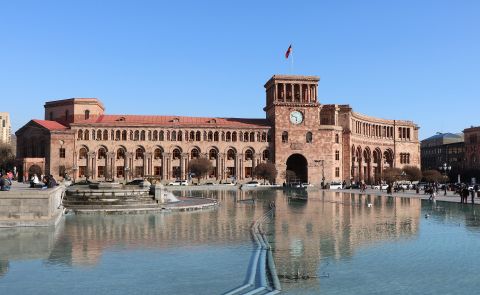
Nikol Pashinyan Meets with Estonian Leaders to Strengthen Bilateral Relations
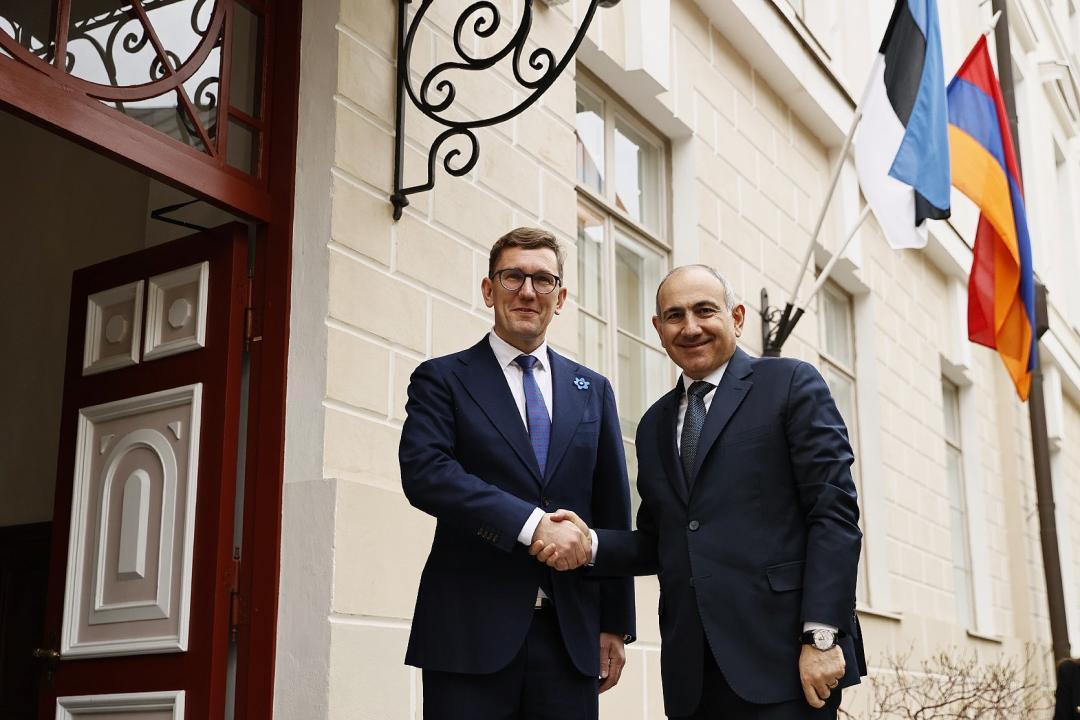
On April 27, Armenian Prime Minister Nikol Pashinyan, during an official visit to Tallinn, Estonia, met with representatives of the local Armenian community, presenting the “Real Armenia” ideology, challenges facing Armenia, and prospects for overcoming them.
On April 28, Pashinyan began the second day of his visit at Estonia’s Presidential Palace, meeting President Alar Karis. Karis welcomed the visit, emphasizing historical ties between the two nations and expressing confidence that it would further strengthen bilateral relations. Pashinyan highlighted recent high-level visits as evidence of mutual commitment to deepening political dialogue and noted Estonia’s support for Armenia’s democratic reforms and experience-sharing. The leaders discussed the Armenia-Azerbaijan peace process, with Pashinyan expressing appreciation for Estonia’s firm support for Armenia’s territorial integrity and Karis welcoming progress toward a peace agreement.
Pashinyan visited the Memorial to the Victims of Communism in Tallinn, laying flowers in tribute, accompanied by Martin Andreller of the Estonian Institute of Historical Memory.
Pashinyan also met with Lauri Hussar, Speaker of the Estonian Parliament, signing the honorary guest book and engaging in discussions during a working lunch. Both sides emphasized strengthening Armenia-Estonia interparliamentary ties, including cooperation on international platforms, and reviewed regional issues, particularly the peace process with Azerbaijan.
Additionally, Pashinyan met Estonia’s Foreign Minister Margus Tsahkna at his residence. They discussed developing bilateral political, economic, and cultural cooperation, as well as regional developments and the importance of signing a peace agreement between Armenia and Azerbaijan.
At the e-Estonia Briefing Center, Pashinyan was introduced to Estonia’s digitalization initiatives by Triin Joasaare and Sigrid Harjo. He praised Estonia’s e-governance achievements and emphasized Armenia’s priority to advance digital public administration, expressing interest in joint programs and experience exchange.
In a meeting with Estonian Prime Minister Kristen Michal, the leaders held private and expanded discussions. Michal expressed readiness to enhance trade and economic ties and support Armenia’s reform agenda. Both prime ministers emphasized expanding business cooperation and discussed Armenia-EU relations, including the Visa Liberalization Action Plan and digital governance initiatives. They reviewed the Armenia-Azerbaijan peace process, with Pashinyan reaffirming Armenia’s commitment to peace and Michal expressing hope for a swift signing of the agreement to ensure long-term stability in the South Caucasus. An official dinner was held in Pashinyan’s honor by Michal.
Press Statements
On April 28, a joint press conference followed the meeting between Pashinyan and Michal, where both prime ministers addressed the media and answered questions.
Estonian Prime Minister Kristen Michal expressed her honor in welcoming Pashinyan and his delegation to Tallinn, highlighting deepening cooperation in various areas. She noted Estonia’s transition to fully digital public services in December 2024 as a significant achievement and emphasized Estonia’s support for shaping Armenia’s digital future, including a project for data exchange between Armenian tax authorities and banks. Michal discussed cooperation in education, including Estonia’s initiative to introduce artificial intelligence in schools to prepare youth for the changing labor market. She highlighted Estonia’s private sector support for Armenian SMEs and expressed Estonia’s backing for Armenia’s European integration. Michal praised progress in the Armenia-Azerbaijan peace process and called for continued support for Ukraine amid Russian aggression.
Pashinyan expressed gratitude for the warm welcome and emphasized the importance of strengthening Armenia-Estonia relations. He acknowledged Estonia’s support for Armenia’s democratic reforms, particularly in digital governance, and reaffirmed Armenia’s commitment to deepening cooperation in education, science, and technology. Pashinyan highlighted Armenia’s European aspirations and the role of Armenia-Nordic Baltic (NB8) cooperation in supporting democratic reforms and European integration. He reiterated Armenia’s commitment to sustainable peace in the South Caucasus through constructive dialogue and negotiations.
Responding to a question about Armenia’s relations with Russia, given the loss of Nagorno-Karabakh and efforts to reduce Russian influence, Pashinyan explained Armenia’s balanced foreign policy, aiming to maintain good relations with all partners, including Russia, while pursuing democratic reforms and European integration. He clarified that Armenia has no intention of straining or severing ties with Russia and stressed the importance of transparency in foreign relations.
Michal, addressing Estonia’s role in supporting Armenia’s EU integration, highlighted Estonia’s expertise in digital state solutions and democratic reforms, affirming commitment to improving the quality of life for Armenians through reforms in digital and justice sectors.
In response to a question about Armenia’s EU integration alongside participation in Moscow parades, Pashinyan reiterated that Armenia seeks to avoid worsening relations in any direction. He emphasized a strategy of deepening ties across all partners and managing potential tensions with transparency and honesty. On the peace agreement with Azerbaijan, Pashinyan reaffirmed Armenia’s consistent and patient efforts toward signing the agreement and establishing lasting peace.
See Also


BP Plans Second Deep-Gas Production Well at Azeri-Chirag-Gunashli
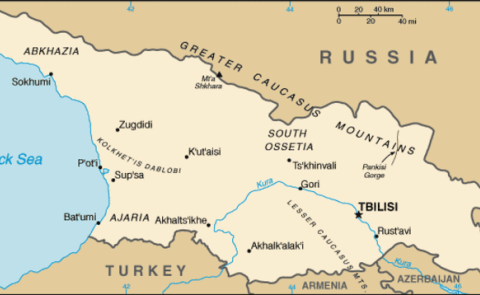
Separatist Abkhazia and Russia Reaffirm Strategic Partnership in Moscow Meeting
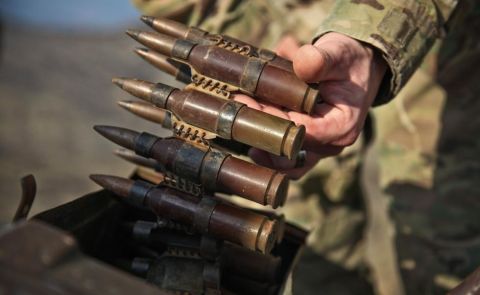
Weekly Brief on Military Situation in South Caucasus Countries (June 2–8, 2025)
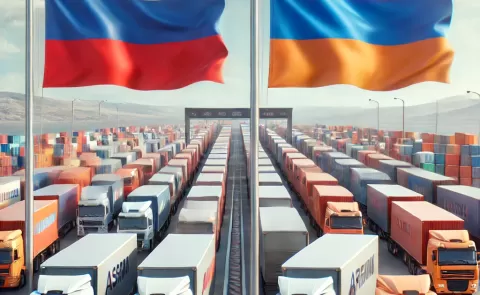
Armenia–Russia Trade Hits $12 Billion in 2024, Up 60%

